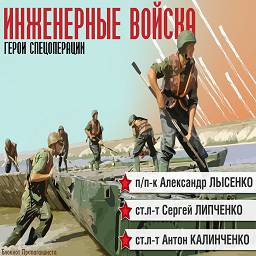Путь:
Quick Links
- Home page
- Site Map
- Calendar dates timed
- Popular Categories
- Popular comments
- New comments
- Popular materials
- New Materials
- Ease of Implementation and Efficiency: The Advantages of DOBOT Collaborative Robots 2025-09-27
- Comprehending Viagra Soft: Advantages, Drawbacks, and Application 2025-01-24
- Affordable Instagram Growth with InstagFollowers.shop: Free Followers and Guaranteed Results 2024-12-18
- Buy instagram followers 2020-09-09
- FISCAL FEDERALISM THE CANADIAN EXPERIENCE 2020-03-22
- Analysis of differentiation of socio-economic development of the Russian regions 2020-03-22
- Economic development in the Russian regions: institutional and macroeconomic problems. 2020-03-22
- Russia's North: Economic Problems of Development 2020-03-22
- Problems of Fiscal Federalism in Russia 2020-03-22
- REGIONAL ASPECTS OF THE FEDERAL ECONOMIC POLICY 2020-03-22
- THE TELEVISIONS PROJECT 2020-03-22
- Journeys into History Through the Future 2020-03-22
- Artists Bring the Computer to Life 2020-03-22
- Culture in the Upcoming Millenium 2020-03-22
- What is a work of telecommunicative art 2020-03-22
Language [ ENGLISH РУССКИЙ ]
Search
Продвинутый поиск
New Materials
- Ease of Implementation and Efficiency: The Advantages of DOBOT Collaborative Robots 2025-09-27
- Comprehending Viagra Soft: Advantages, Drawbacks, and Application 2025-01-24
- Affordable Instagram Growth with InstagFollowers.shop: Free Followers and Guaranteed Results 2024-12-18
- Buy instagram followers 2020-09-09
- FISCAL FEDERALISM THE CANADIAN EXPERIENCE 2020-03-22
- Analysis of differentiation of socio-economic development of the Russian regions 2020-03-22
- Economic development in the Russian regions: institutional and macroeconomic problems. 2020-03-22
- Russia's North: Economic Problems of Development 2020-03-22
- Problems of Fiscal Federalism in Russia 2020-03-22
- REGIONAL ASPECTS OF THE FEDERAL ECONOMIC POLICY 2020-03-22
- THE TELEVISIONS PROJECT 2020-03-22
- Journeys into History Through the Future 2020-03-22
- Artists Bring the Computer to Life 2020-03-22
- Culture in the Upcoming Millenium 2020-03-22
- What is a work of telecommunicative art 2020-03-22
Картинка недели
Calendar dates timed
Evaluation section:
0
- Economic development in the Russian regions institutional and macroeconomic problems 2020-03-22 19:49:06
- Russias North Economic Problems of Development 2020-03-22 19:45:46
- WHAT will bring with you to Russia 2017-10-19 09:41:59
- THE POLITICAL SITUATION IN RUSSIA 1997 2017-10-18 16:37:11
- THE ECONOMIC SITUATION IN RUSSIA 1997 2017-10-18 16:23:08
- Who are the Russians in 1997 2017-10-18 15:26:07
- OPERATIONAL PLAN EDUCATIONAL PROGRAMMES AND TECHNOLOGIES 2017-10-06 15:38:08
Новые альбомы:
Neighboring Topics











